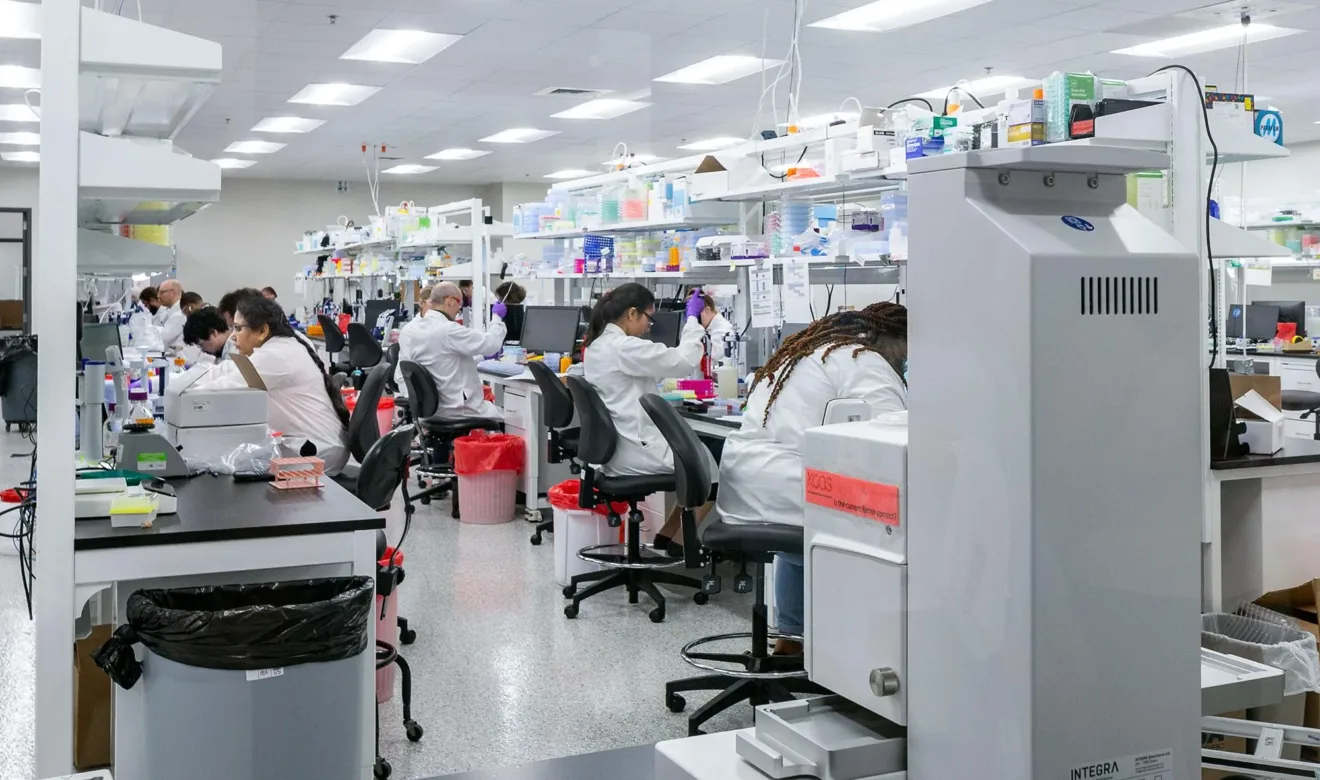
CRO Services
Bioanalytical and biomarker services based on a deep understanding of your drug development and business ambitions. KCAS Bio understands the importance of speed and flexibility, providing comprehensive GLP (good laboratory practice)/GCP (good clinical practice), and non-GLP services as an extension of your laboratory team.

Find exactly what you’re looking for
Search for specific services, platforms, instrumentation, or scientific insights.
Molecular Services
Techniques and services delivered from our purpose-built facilities in the US and Europe. We deliver data on time and only make promises we can keep.

Flow cytometry services
World-leading spectral and conventional flow cytometry assay development, validation, and sample processing for both GLP/GCP and non-GLP outsourcing. KCAS Bio employs rigorous quality practices and processes that are continuously improved, enabling us to confidently support you with flow cytometry services across non-clinical and clinical studies.

The very best scientists measuring metabolite concentrations in biological matrices, using the latest instrumentation.
Explore nowAnalysis consistently and reliably delivered using state-of-the-art immunoanalytical technologies, with data integrity is embedded in our culture.
Explore nowSingle and multiplex biomarker analysis services led by some of the best scientists. KCAS Bio consistently delivers error-free data with accurate, reliable data summaries across a variety of matrices and a wide range of therapeutic areas.
Explore nowKCAS Bio offers Certificate of Analysis (CoA) and Certificate of Testing (CoT) across a wide range of services, and complies with global good laboratory practice (GLP) guidance.
Explore nowKCAS Bio has the ability to customize kits to client specifications for all phases of clinical trials. By aligning our own processes to support our client’s outsourcing priorities, we provide tailored solutions that accelerate drug development.
Explore nowWe bring the full power of large molecule bioanalysis and LC-MS/MS to early stage research projects. We minimize downtime, avoid delays, and keep lead times as short as possible.
Explore now
Tell us how we can help with your project
We've earned our reputation for delivering reliable, error-free data. We understand the importance of speed, flexibility, and consistency and only make promises we can keep.